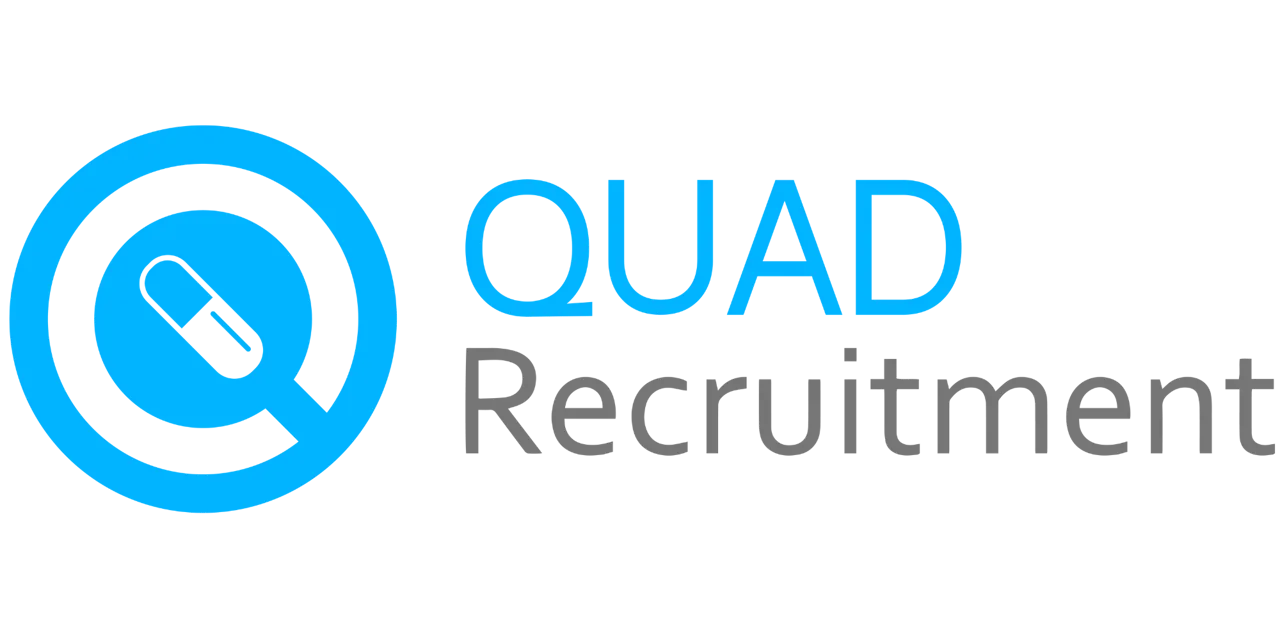A Comprehensive Guide to Pharmacy Jobs in the USA
01 Jul, 202412 minShifting demographics, growing prevalence of disease patterns, and an increase in prescripti...

Shifting demographics, growing prevalence of disease patterns, and an increase in prescriptions are contributing to a steady rise in pharmacist demand across the US. To meet these growing requirements, the pharmacy industry has progressively expanded its workforce by adding various specialist roles such as community pharmacists, who provide patient care, and IT pharmacists, whose job is to streamline operations and improve healthcare system efficiency.
As priorities shift and technological advancements play a more crucial role in patient care, aspiring pharmacists must adapt to navigate the ever-growing pharmacy landscape by honing their skill sets beyond just medication experts. This blog dives deep into the complexities of professions in pharmacy, licensing processes, educational requirements, and different types of pharmacy jobs in the US, including key tactics to landing a secure position that best fits your career wants and needs.
Introduction to Pharmacy Jobs in the USA
The US has a multi-faceted work market for pharmacists, with positions available in spaces like local pharmacies, hospitals, pharmaceutical research facilities, and regulatory agencies. Informatics in pharmacy has moved the technological revolution within healthcare forward. Those pursuing informatics pharmacy jobs for instance can leverage their specialized knowledge of pharmacy and information technology to integrate, manage, and utilize data effectively.
What is a Pharmacist?
Pharmacists understand how to prepare, dispense, and ensure the safe use of drugs. They act as a vital link between doctors and patients, ensuring patients receive the right medications at the correct dosage, following the doctor's prescription. Unlike pharmacists, pharmacy technicians play a supportive role, in handling tasks like packaging medications.
Different Types of Pharmacists
Career opportunities within the pharmacy industry continue to grow as technology influences the healthcare industry. This provides new opportunities for those with varying interests, from aspiring pharmacy technicians to dispensers. Common types of pharmacists include:
Clinical pharmacists work within hospitals and clinics. They monitor drug therapy, treat adverse effects associated with medicine, and coordinate treatment regimens with doctors.
Retail pharmacists fill prescriptions for customers, provide instructions on medication use, and respond to inquiries about possible side effects and drug interactions.
Research pharmacists conduct research and development for pharmaceutical companies. They are involved in the creation, testing, and manufacturing of new medications.
Long-term care pharmacists specialize in medication management for nursing homes, assisted living facilities, and other long-term care settings.
Academic pharmacists educate pharmacy students, conducting research in academic institutions which contribute to advancements in pharmaceutical sciences.
IT pharmacists are responsible for managing and optimizing the use of technology in pharmacies and healthcare settings.
Essential Skills and Qualities of a Successful Pharmacist
Successful pharmacists possess a unique blend of skills and qualities, such as:
Clinical knowledge: A comprehensive understanding of pharmacology, drug interactions, and therapeutic guidelines.
Communication and interpersonal skills: Pharmacists must effectively communicate complex medical information to patients in a manner that is clear yet simple enough to understand.
Attention to detail and accuracy: Ensuring medication safety requires a meticulous mind, particularly when dispensing prescriptions.
Problem-solving skills: The best pharmacists are adept at identifying and resolving medication-related problems, such as potential interactions or adverse reactions.
Empathy and patient care: By building trust and rapport with patients, pharmacists provide emotional support and guidance throughout their treatment journey.
Educational and Licensing Requirements
Becoming a licensed pharmacist in the USA typically follows a structured path that involves education, training, and examinations. Here's a breakdown of the key requirements:
Educational Qualifications
Pharmacy schools often require a bachelor's degree in a pre-pharmacy program or a related science field like biology or chemistry. This is followed by the main professional degree — a Doctor of Pharmacy (PharmD) program accredited by the Accreditation Council for Pharmacy Education (ACPE). A combination of classroom learning and hands-on clinical experiences, this program usually lasts four years post-baccalaureate.
Training and Experiential Learning
Aspiring pharmacists receive practical training that covers topics such as pharmacology, pharmacy law, patient care, and pharmacy management. Pharmacy schools often integrate experiential learning opportunities in various pharmacy settings. These may include rotations, wherein students gain experience in retail, hospital, and other practice areas. Internships also provide real-world experience under the guidance of licensed pharmacists.
Licensing Requirements and Examination Processes
After completing a PharmD program, the next step would be passing the North American Pharmacist Licensure Examination (NAPLEX), a computer-adaptive exam that assesses a candidate's ability to apply knowledge in pharmacy practice. Additionally, depending on the state, candidates may need to pass a state-specific pharmacy law examination, referring to the Multistate Pharmacy Jurisprudence Examination (MPJE). The MPJE tests knowledge of pharmacy law and regulations specific to the state in which the candidate seeks licensure. Once these examinations are completed, candidates can apply for licensure through their state's board of pharmacy.
Types of Pharmacy Jobs
The field of pharmacy offers diverse career paths, each with its work environment and responsibilities. Specific roles require specific skills, offering unique opportunities to contribute to patient care, pharmaceutical research, or industry advancements.
Here's a glimpse into the varying paths you can take in pharmacy:
Staff Pharmacist
Dispenses medications in retail pharmacies counsels patients on medication use, and manages patient medication records. They are also in charge of regulatory compliance. Typically works in retail pharmacies, drug stores, or grocery stores with pharmacies.
Hospital Pharmacist
Working within hospitals and clinics, the job of hospital pharmacists includes collaborating with doctors on patient medication plans, monitoring drug therapy for inpatients, and ensuring medication safety.
Research Pharmacist
Conducts research and development for pharmaceutical companies, contributing to the discovery, testing, and manufacturing of new medications.
Clinical Pharmacist
Works in various healthcare settings, focusing on optimizing patient medication therapy. Clinical pharmacy covers the review of medication regimens for effectiveness and safety, participation in patient education, and management of medication-related problems.
Specialty Pharmacist
Develops expertise in specific therapeutic areas like oncology, cardiology, or infectious disease, providing advanced medication management for patients with complex conditions.
Industrial Pharmacist
Works in pharmaceutical manufacturing facilities and research and development labs. Involved in drug manufacturing, quality control, regulatory compliance, and product development within pharmaceutical companies.
Travel Pharmacist
Can work in different regions and gain experiences through diverse healthcare setups.
State-by-State Guide to Pharmacy Employment
The pharmacy job market varies across the US. While some general trends exist, specific requirements or considerations might apply to each state.
Here's a look at some key pharmacy employment states:
California: California boasts a large healthcare industry and high pharmacist employment levels. However, it also has competitive licensing requirements, including a Doctor of Pharmacy (PharmD) degree and successful completion of the California Law Examination (CLE) in addition to the NAPLEX and MPJE. California also possesses a high demand for Spanish-speaking pharmacists due to the state's diverse population. Strong emphasis on compliance with California pharmacy laws and regulations.
Texas: Texas offers a growing pharmacy job market, with a projected job growth rate exceeding the national average. The state requires a PharmD degree and passing the NAPLEX, MPJE, and a jurisprudence exam specific to Texas. Opportunities exist in rural areas as well as urban centers. Pharmacists may need to fulfill additional continuing education requirements specific to Texas law.
New York: New York has a significant healthcare sector and a strong demand for pharmacists. Similar to California, New York has a law exam requirement for licensure in addition to the standard NAPLEX and MPJE. New York is a competitive job market with potential for specialization in areas like oncology, psychiatric pharmacy, and geriatrics. Compliance with stringent state regulations is crucial.
When exploring pharmacy jobs in different states, it’s important to consider these general factors:
Licensing Requirements: Each state has its own licensing process, so research the specific requirements for your desired location.
Job Market: Investigate job availability and projected growth in your area of interest.
Cost of Living: Consider the cost of living when comparing salaries across different states.
Finding Pharmacy Jobs: A Step-by-Step Guide
To secure your dream pharmacy job, a proactive approach is key. Before you start applying, below are some of the ways you can land pharmacist roles effectively:
Leverage Online Resources
Nowadays, there are endless career websites to explore, no matter the field you’re in. Pharmacy-specific job boards like the American Pharmacists Association (APhA) highlight top vacancies in the industry. Sites like Quad Recruitment and Indeed also prove useful and accessible to those looking to find pharmacist positions.
Explore Recruitment Agencies
Specialized pharmacy recruitment agencies are ideal for those seeking to connect with employers that meet specific career needs. These agencies link qualified candidates with healthcare institutions in need of staff. Reach out to us at Quad Recruitment to submit your resume and have available positions delivered to you.
Network Actively
Attending conferences and trade shows is one of the fastest ways to expand your network and meet potential employers. Professional organizations like pharmacy associations also offer more opportunities to build relationships with other industry professionals. As mentioned previously, online resources like LinkedIn are not only good for job-hunting but also for connecting with other pharmacists and companies in your area.
Leverage Professional Networks
Utilize professional resources like Quad, a leading recruitment organization with an extensive network of pharmacy professionals and healthcare institutions. As employers continue the pharmacist search, leverage Quad’s expertise to grasp opportunities that align with your career goals.
Crafting the Perfect Resumé and Cover Letter for Pharmacy Jobs
A complex industry demands specific qualifications, which you can best showcase in a comprehensive resumé. Tailor it effectively by first highlighting relevant work experiences, from clinical rotations to internships. It’s best to quantify your achievements to showcase impact straightforwardly. For example, highlight the percentage of patients you successfully counseled on medication use. Under the skill sets section, set yourself apart by listing specific capabilities like medication dispensing, patient counseling, or experience with pharmacy software systems. Other areas to include are your education (detail your PharmD degree), certifications, and professional affiliations if applicable.
Resumé aside, a well-written cover letter is also necessary to make your application stand out. Express your passion for the role by highlighting specific aspects of the opportunity that excite you. It’s also important to bridge the gap between your skills and the job description — align each requirement with your expertise, and make sure to illustrate examples for credibility. Close out your letter by providing your contact information and conveying your interest in proceeding to an interview.
It’s key that you showcase professional certifications and participation in continuing education programs to demonstrate your dedication to professional development. Various areas in pharmacy have specialized certifications, such as Board Certified Pharmacotherapy Specialist (BCPS) or Certified Diabetes Care and Education Pharmacist (CDCES). List relevant certifications on your resumé to strengthen your candidacy.
Preparing for Pharmacy Job Interviews
Depending on your role, you might be faced with these general questions as you enter the pharmacy field. Explore other notable questions, tailored to the profession, by clicking here.
Common Interview Questions (and How to Answer Them)
Tell me about your prior experiences in the field.
Use the STAR method (Situation, Task, Action, Result) to structure your response, providing a specific example that demonstrates your skills and achievements.
Why are you interested in this position?
Research the company and position beforehand. Explain what specifically attracts you to this opportunity and how it aligns with your career goals.
Describe a challenging situation you faced in a pharmacy setting and how you resolved it.
Share a real-life experience where you demonstrated your problem-solving skills, communication abilities, or commitment to patient care.
What Employers Look For in Potential Candidates
Employers typically seek candidates with a strong blend of technical skills, interpersonal qualities, and a genuine passion for pharmacy. Clinical competence tops the list, requiring all budding pharmacists to possess the required pharmacological knowledge for effective patient care. Proper communication with patients and healthcare teams is also a must, alongside professionalism. This spans ethical decision-making and compliance with legal and regulatory standards.
How to Effectively Demonstrate Your Knowledge and Skills
Active listening and thoughtful responses are the fundamental building blocks to a successful interview. Demonstrate genuine interest by inquiring about the pharmacy itself and the position you are applying for. Use specific examples to showcase your clinical skills and patient-centered care.
Salary Expectations and Career Progression
Average Salary Ranges
Pharmacist salaries can vary depending on various factors, from experience, location, work setting, and area of specialization. According to Statista, the average annual wage for pharmacists in the US in 2023 was USD$127,980.
Career Progression and Pathways
The field of pharmacy offers diverse career paths with many opportunities for career advancement. Those who pursue specializations in the field can work in areas such as oncology, geriatrics, psychiatric pharmacy, or ambulatory care. Role-wise, pharmacyl management is also another option for those aiming for roles like clinical coordinator or director of pharmacy operations. Education is another path that shouldn’t be overlooked, as it spans roles in academia and research.
Benefits and Challenges
A career in pharmacy presents a unique opportunity to bridge scientific expertise with a commitment to patient care. Pharmacists contribute directly to positive health outcomes by ensuring the safe and effective use of medications. This field offers stability, opportunities for advancement, and competitive compensation. Additionally, pharmacists experience the gratification of witnessing patients improve their well-being through medication management.
It is important to acknowledge that the profession also presents challenges. Pharmacists may encounter demanding workloads, extended hours, and the need for meticulous accuracy to prevent medication errors. The field requires continuous learning to stay abreast of evolving regulations and advancements in pharmacotherapy.
The Future of Pharmacy Jobs
As the pharmacy landscape continues to shift, here are some trends to take note of as we move into the modern age of healthcare.
Emerging Trends
Telepharmacy: With the rise of telecommunication technology, pharmacy services can now be provided remotely, enhancing access to healthcare for anyone, anywhere.
Personalized Medicine: Today’s pharmacists have ventured into tailored medication — making selections based on unique patient characteristics such as genetics, lifestyle, and environment, for maximized effectiveness.
Expanded Clinical Roles: Pharmacists are no longer limited to specific tasks, as they become more involved in areas like direct patient care, medication therapy management, and chronic disease management.
Technological Advancements
Automation: The automation of manual tasks like medicine dispensing allows for heightened accuracy and more time for pharmacists to focus on other aspects of patient care, such as counseling and medication management.
Electronic Health Records (EHRs): Enhance communication between pharmacists and other healthcare providers with EHRs for better coordinated care.
Job Growth and Areas of Demand
The Bureau of Labor Statistics (BLS) projects a positive job outlook for pharmacists, with an anticipated growth rate of three percent from 2022 to 2032. Areas expected to see high demand include:
Specialty Pharmacists: Pharmacists with expertise in specific disease states like oncology, cardiology, or infectious disease.
Clinical Pharmacists: Pharmacists who work within hospitals and clinics to optimize patient medication therapy and ensure medication safety.
Community Pharmacists: Pharmacists who provide medication dispensing, counseling, and immunizations in retail settings.
Resources and Tools for Pharmacy Job Seekers
Stay updated on industry trends with these informative resources, curated to help pharmacy job seekers effectively navigate the evolving pharmacy landscape.
Websites
American Pharmacists Association (APhA)
National Association of Boards of Pharmacy (NABP)
Pharmacy Times Careers
Books
"Sullivan's Review Pharmacy" by Michael P. Sullivan
"Pharmacotherapy: A Pathophysiologic Approach" by Gary Dipiro et al.
"Nonprescription Medication" by Linda Lane Lilley et al.
Professional Organizations
American College of Clinical Pharmacy (ACCP)
American Society of Health-System Pharmacists (ASHP)
Continuing Education and Certification
ACPE Accredited Programs: Offer continuing education credits in various pharmacy practice areas.
Board Certification: Specialty certifications such as Ambulatory Care Pharmacy (BCACP), Pharmacotherapy (BCPS), or Nuclear Pharmacy (BCNP).
Pharmacy Residencies and Fellowships: Provide advanced training in specialized areas of pharmacy practice.
Online Forums and Support Groups
Online forums and support groups can connect you with other pharmacists, allowing you to share experiences, ask questions, and stay updated on industry trends. If you haven’t, you should consider joining the Pharmacy Times Community, an online platform offering discussions, articles, and resources for pharmacists. LinkedIn groups also exist for those wishing to focus on pharmacy practice, networking, and professional development.
Conclusion
If you’re intrigued by a career that pursues scientific knowledge while making a distinct impact, a pharmacist position could tick all your boxes. Whether you’re at the beginning of your career or wish to advance in the field, leverage our robust resources so you can navigate the pharmacy industry with confidence.
Learn how to land your ideal position, from high-level informatics pharmacist jobs to budding pharmacy professional roles, with our expert staffing solutions.



